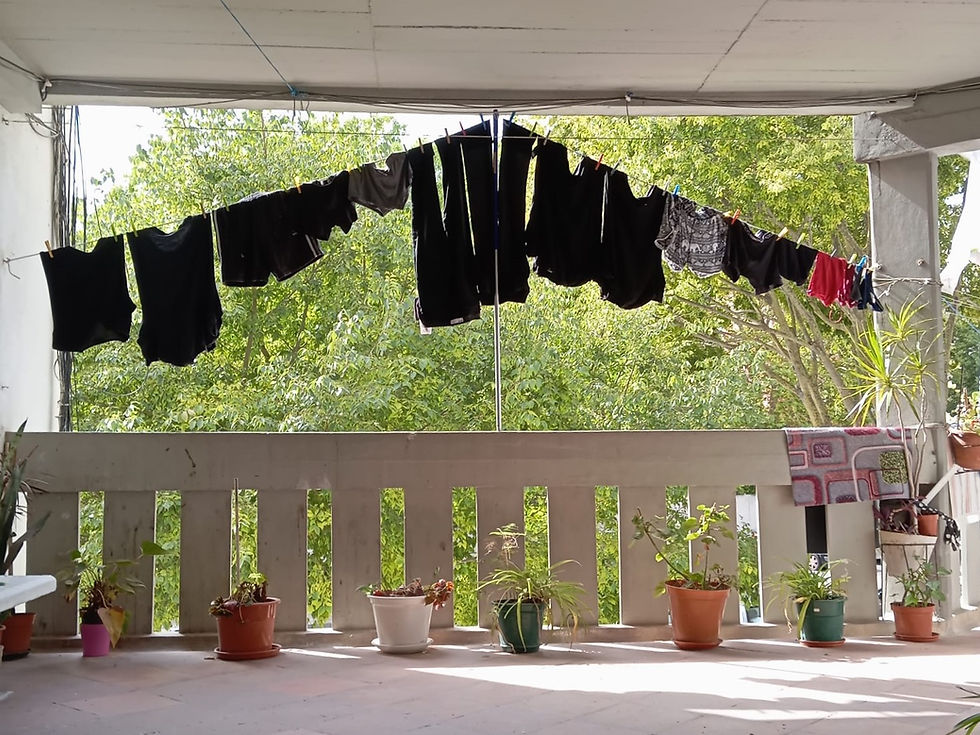Seminar "Uncovering Contraceptive Inequities: Insights from the 2024 Australian Women’s Health Survey"
- Pedro Simão Mendes

- Jul 24, 2025
- 3 min read
Updated: Jul 29, 2025
The Thematic Line 3 of the SocioDigital Lab for Public Policy is pleased to announce the visit of Professor Vera Camões-Costa, from Monash University, to Iscte – Instituto Universitário de Lisboa in September, 2025.
Research Fellow at SPHERE, the National Health and Medical Research Council (NHMRC) Centre of Research Excellence in Women’s Sexual and Reproductive Health in Primary Care, Australia, Dr. Vera Camões-Costa will give a talk on September 8, at Iscte's Building 4, Room B326, about reproductive health, based on data from the 2024 Australian Women’s Health Survey.
About the seminar
Unintended pregnancies carry significant health, social, and economic consequences. Despite the availability of highly effective methods such as long-acting reversible contraception (LARC), uptake in Australia remains low at just 11-13%, compared to over 30% in countries like Sweden and England. Among Australian women aged 18–24, more than one in ten have experienced an unintended pregnancy.
Using cross-sectional data from the 2024 Australian Women’s Health Survey (n = 3,537), we explored contraceptive use, preferences, knowledge, and attitudes among women aged 18–24. We further compared these factors between culturally and linguistically diverse (CALD) and non-CALD women aged 18–50 who are actively avoiding pregnancy.
Although most young women wish to avoid pregnancy, few use the most effective contraceptive methods or their preferred method. Side effects (rather than cost) are the primary deterrent to LARC use. Misinformation, often sourced from peers, family, and online platforms, contributes to misconceptions and subjective norms that shape contraceptive choices.
CALD women exhibit significantly lower levels of contraceptive knowledge than their non-CALD counterparts. One in three CALD women avoiding pregnancy reported not using any contraception, compared to one in four non-CALD women, despite fewer CALD women expressing a preference for non-use. Among those using contraception, most relied on methods of mild to moderate effectiveness. CALD status emerged as a significant predictor of contraceptive knowledge, which was found to decrease with age and increase with preference for more effective methods. However, no association was observed between knowledge and the actual effectiveness of the method in use.
These findings highlight persistent disparities in contraceptive use and knowledge, with CALD women at greater risk of unintended pregnancy and poorer sexual and reproductive health outcomes. Cultural and behavioural factors (beyond knowledge alone) appear to influence contraceptive decision-making. This underscores the need for culturally responsive, and behaviourally informed interventions to address subjective norms, beliefs, attitudes, and cultural barriers. Directions for future research will explore these influences further.
About Prof. Vera Camões-Costa

Dr. Vera Camões-Costa is a Research Fellow at SPHERE, the National Health and Medical Research Council (NHMRC) Centre of Research Excellence in Women’s Sexual and Reproductive Health in Primary Care, Australia. SPHERE is a collaborative hub of Australian and international experts dedicated to advancing sexual and reproductive health.
As a behavioural and implementation scientist, Dr Camões-Costa’s work centres on understanding and facilitating health-related behaviour change. Her expertise spans the theoretical foundations of behaviour change and the practical application of these theories to the development, implementation, and evaluation of health interventions. From evidence synthesis to knowledge translation, her mission is to transform healthcare practices to better meet the needs of health consumers.
Driven by a commitment to equity and impact, she strives to ensure that all individuals have access to timely and effective care by embedding the voices and experiences of consumers into her research. Dr Camões-Costa brings over a decade of clinical experience from the United Kingdom as a former mental health practitioner, alongside more than 10 years of research experience in Australia. She has worked closely with leading experts in population health and primary care across multidisciplinary teams.About the seminar:


